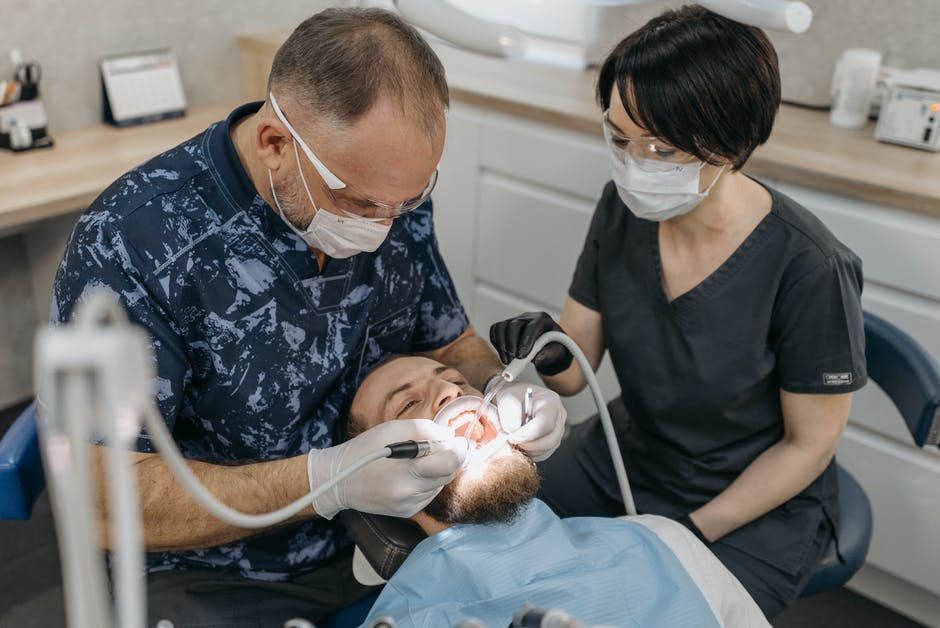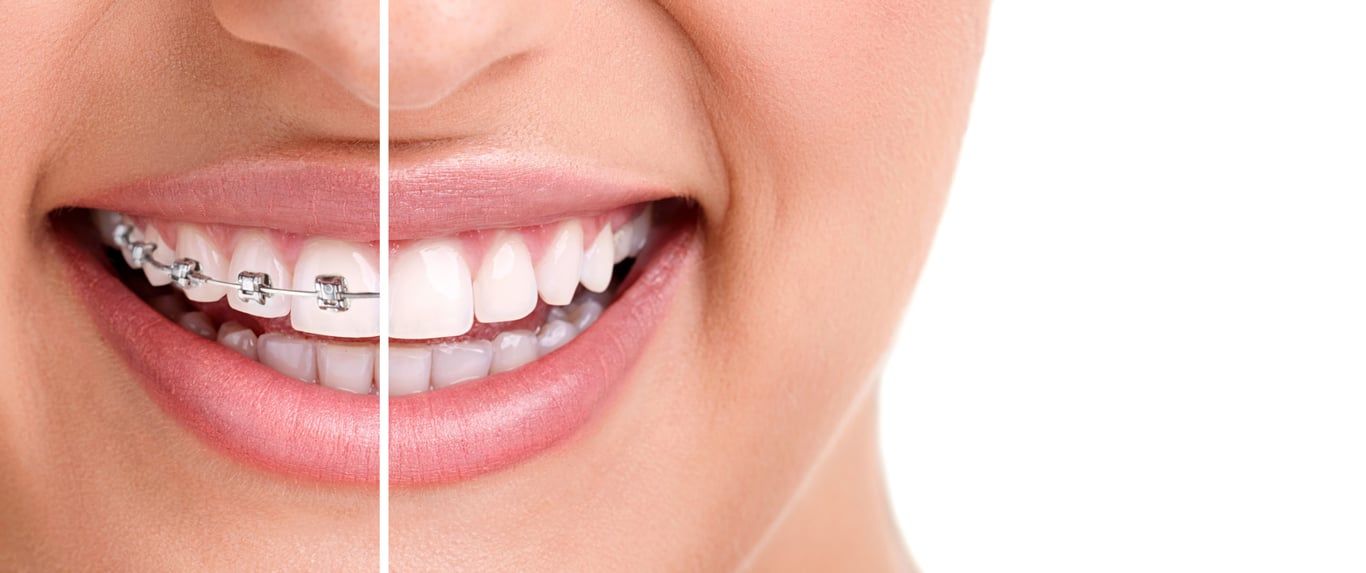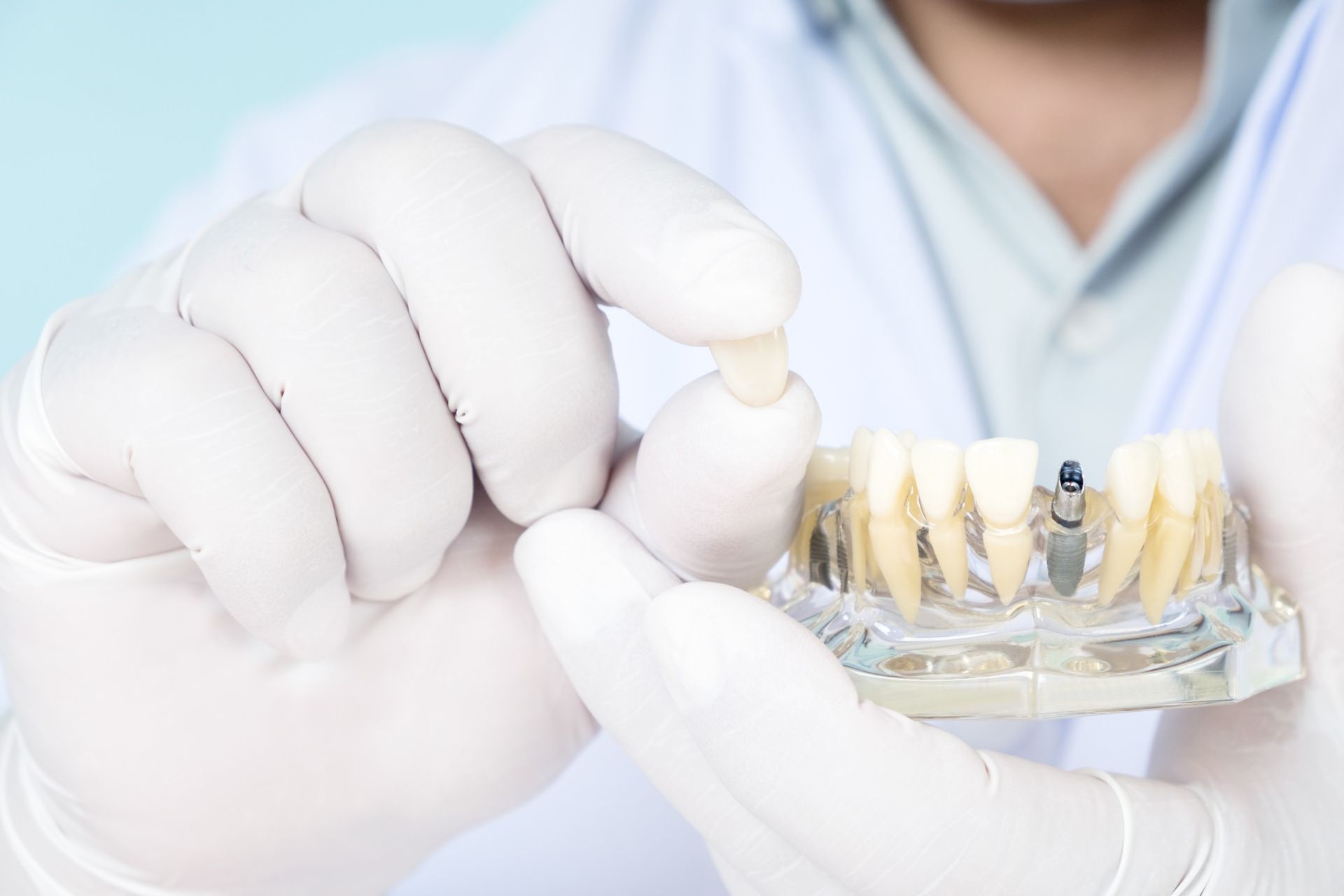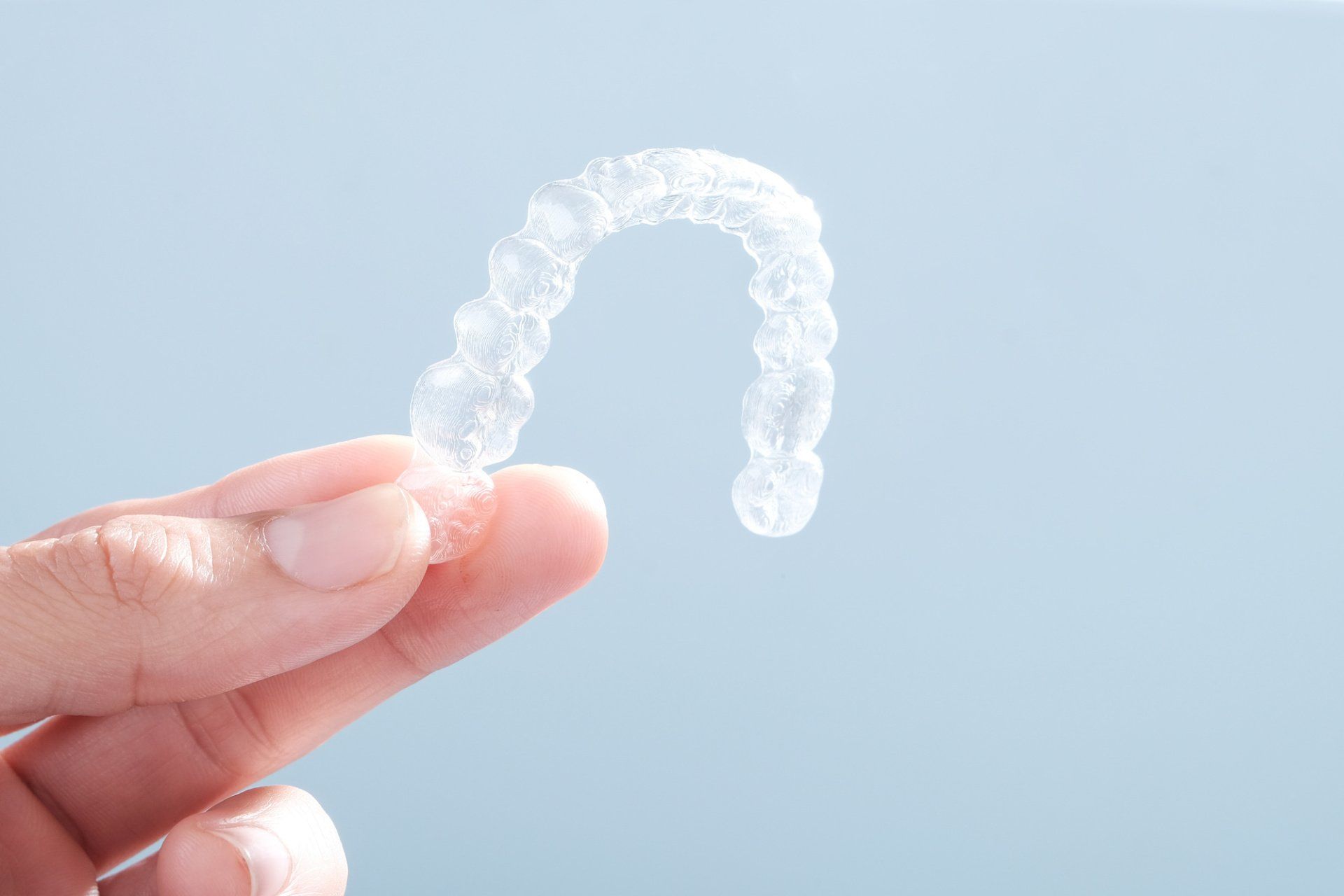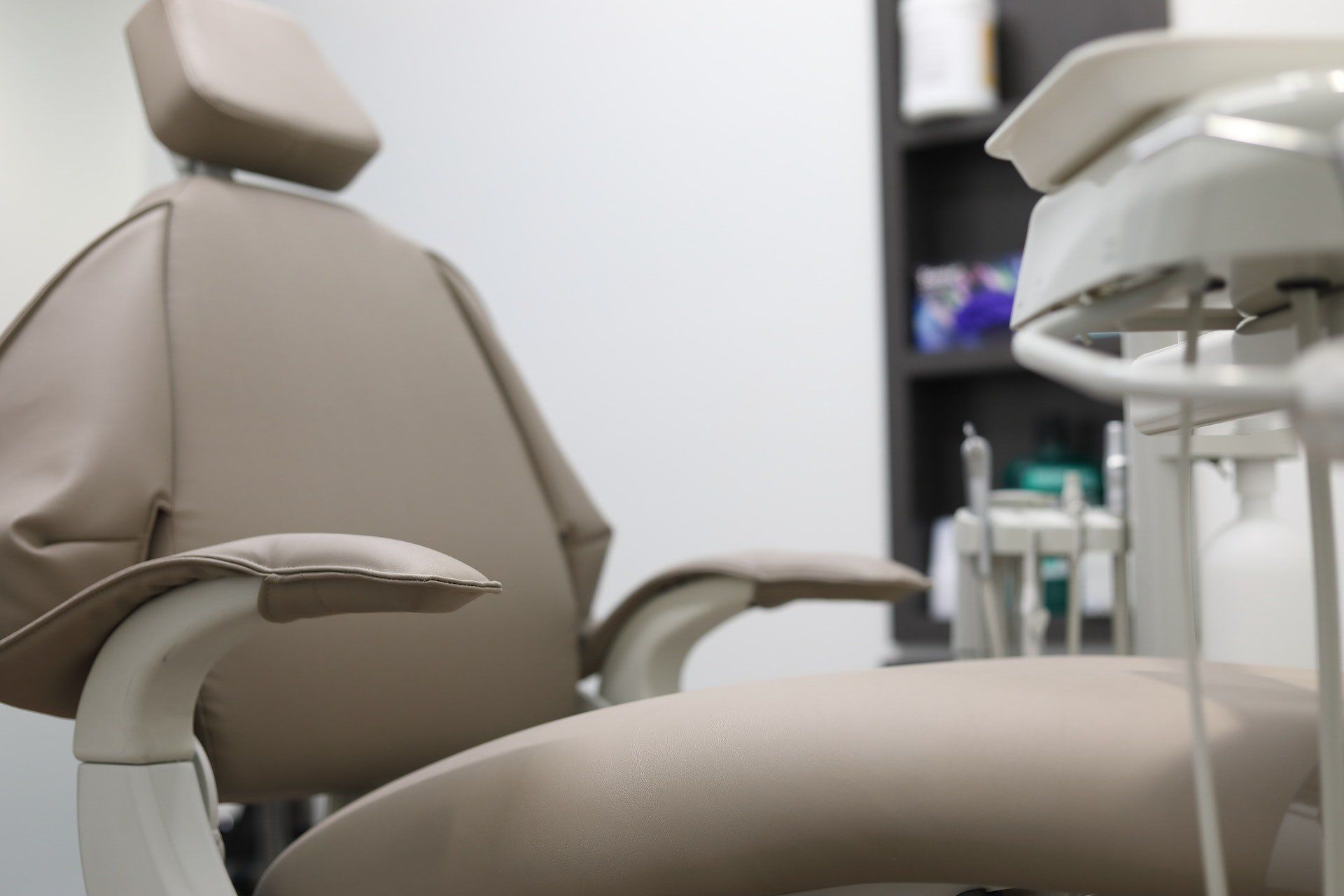Why It Is Important to Replace Missing Teeth: From Aesthetics to Oral Health
According to the CDC's 2024 Oral Health Surveillance Report, adults aged 20-34 typically have 27 permanent teeth, but this drops to 23 by age 50-64, 21 by age 65-74, and 19 by age 75. This gradual loss of teeth highlights how common the problem of missing teeth is and how important it is to address it early.
Missing teeth are more than a cosmetic issue -- they can affect oral health, facial structure, and overall well-being. The consequences of missing teeth can be long-lasting or even life-altering.
Learn more about these consequences below and why you should take action now.
Bone Loss in the Jaw
When a tooth is missing, the jawbone in that area no longer gets the stimulation it needs to stay strong. Chewing provides natural pressure that keeps the bone healthy, but the bone starts to shrink without a tooth. This process is called bone resorption and can happen faster than many realize.
Over time, this bone loss can change your facial structure. Your face may appear sunken or hollow, especially around the cheeks and jawline. These changes often make people look older than they are, which can lower their confidence and affect how others see them.
Luckily, preventing bone loss from missing teeth with solutions like dental implants helps stimulate the jawbone and reduce further deterioration. Implants act like natural tooth roots, supporting your jaw's need to maintain its shape and strength.
Shifting of Surrounding Teeth
When a tooth is lost, the gap left behind does not stay empty for long. The surrounding teeth shift into the space, trying to fill it. This movement may seem minor initially, but over time, it can cause noticeable changes in your smile, such as crooked or misaligned teeth.
These shifts can also lead to bite problems. When your teeth do not align correctly, the misalignment puts extra pressure on specific teeth, causing wear and tear or jaw pain. Fixing these issues requires orthodontic treatment, which can be time-consuming and expensive.
Replacing missing teeth earlier can stop this chain reaction. By filling the gap, you can keep your surrounding teeth in their proper position. You will maintain a healthy, aligned smile and avoid further complications.
Difficulty Chewing and Eating
Missing teeth make it hard to chew properly. This can force you to avoid certain foods, like crunchy fruits or chewy meats, and limit your diet. Over time, poor chewing can lead to digestive issues, as food that is not chewed well is more challenging for the body to process.
A Clinical Nutrition Open Science Journal study shows that chewing difficulties are linked to emotional health. People who struggle with chewing are more likely to experience depression, anxiety, and stress. Pain from chewing difficulties can increase these feelings, creating a cycle that affects your mental and physical well-being.
Missing teeth can make chewing difficult and lead to unhealthy eating habits. Replacing your teeth can help you eat better, improve your health, and feel more confident. It also makes sharing meals with others more enjoyable.
Speech Problems
Teeth play an essential role in forming sounds and pronouncing words. When you have gaps in your teeth, certain sounds may more complicated to produce. This can make you feel self-conscious in conversations or public speaking situations since it may manifest in the following ways:
- Slurred or unclear speech
- Difficulty pronouncing "S," "F," or "TH" sounds
- Whistling noises when speaking
- Lowered confidence in social or professional settings
While some believe missing teeth ruin a person's ability to speak clearly, this is not always true. Many people can adapt their speech over time, but this requires extra effort and can still affect confidence. Replacing teeth is essential; it restores standard speech patterns and makes communication more accessible and natural.
Increased Gum Disease and Tooth Decay Risk
Missing teeth expose the gums to plaque buildup, increasing the chance of gum infections like gingivitis, which causes redness and bleeding around the gumline. For most, gingivitis can be treated with better oral hygiene, but it can develop into periodontitis for others.
Periodontitis is a severe gum disease that affects about 9% of U.S. adults, according to a National Institute of Dental and Craniofacial Research (NIDCR) study. It causes inflammation, damages the bone and tissues supporting teeth, and can lead to poor dental health and tooth loss. The process is often painful and can make eating or chewing difficult.
Replace missing teeth to protect the exposed gums and surrounding teeth from bacteria and plaque buildup. This dramatically improves your oral health.
Changes to Your Facial Appearance
Your teeth play a significant role in supporting your facial structure. When teeth are missing, the lack of support can cause the cheeks to sink slightly and the jawline to appear less defined. You will feel the effects of not replacing teeth, like looking older and less vibrant.
Replacing missing teeth helps maintain facial symmetry. It restores the natural contours of your cheeks and jaw, giving you a more youthful and confident appearance. So invest in your smile to face the world with confidence.
Emotional and Psychological Impact
Missing teeth often lead to feelings of embarrassment or self-consciousness, especially when smiling or speaking. Over time, this emotional strain can impact your mental health. Common emotional effects include:
- Feeling unattractive or judged
- Avoiding photos or public events
- Reduced confidence in work or personal relationships
- Increased feelings of isolation or sadness
Many people believe missing teeth are a cosmetic issue, but this is false. While feeling embarrassed is natural, dwelling on this myth can prevent you from seeking dental help. Replacing missing teeth is not just about looks—it is about improving your oral health after tooth loss and well-being.
Do Not Let the Consequences of Missing Teeth Affect Your Smile
The consequences of missing teeth cut across your oral health, appearance, and confidence. Thankfully, there are effective ways to replace missing teeth and restore your smile. By taking action, you can protect your health and feel confident again.
Mount Laurel Dental & Implant Center is here to help restore your smile and oral health. Our convenient location serves patients from Mount Laurel, Hainesport, and nearby areas.
Please schedule an appointment today to learn how our experts can help replace missing teeth and regain confidence.





